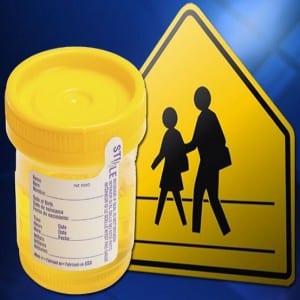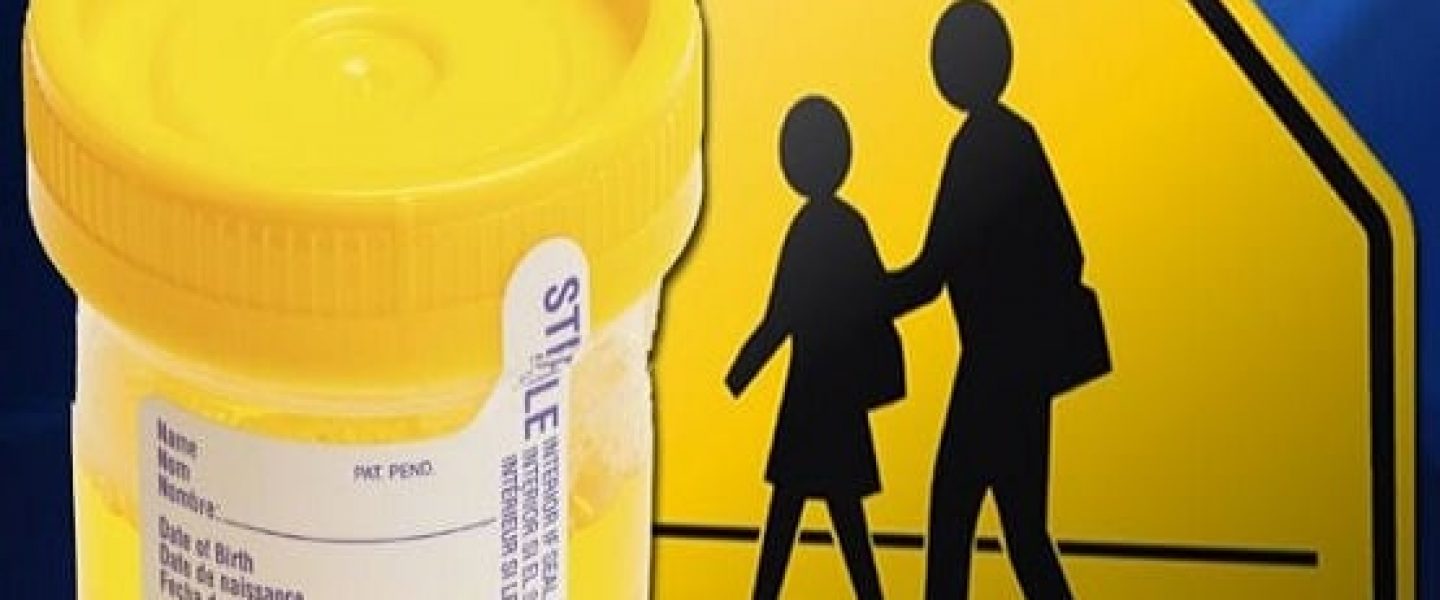
I did not go to a high school that drug tested students or athletes. However, I remember reading stories about schools that did in other parts of the country. I understand that kids have less of a right to privacy while at school compared to outside of school, and especially compared to when they are no longer in school and are adults. That lower expectation of privacy is due to safety concerns at the school.
However, that doesn’t mean that privacy goes out the window. That safety argument has to be balanced with privacy in a reasonable way. Collecting kids’ urine to examine it to see if there’s traces of marijuana in it throws that balance way out of whack. You better believe when my son is in school, there’s no way I’m allowing the school to collect his urine. They can suspend him, or kick him out even. It’s not going to happen.
People will make the argument, ‘if the student has nothing to hide, they shouldn’t mind taking a drug test.’ I have heard opponents make that argument a lot. I would offer up that if there is no evidence a student has done anything wrong, why should they go through such a degrading process? And even if there is evidence of drug use, it should be the parents that handle the matter, not an academic bureaucrat.
For every $3,000 spent, only one positive drug test occurs. Imagine what $3,000 could do for a school. The American Academy of Pediatrics recently issued a statement opposing random drug testing. When the American Academy of Pediatrics says something is harmful to children, people should listen (that means you Kevin Sabet and Project S.A.M.!):
Drug testing can be useful for pediatricians and other health care providers to assess substance use or mental health disorders in adolescents, but random drug testing in schools is a controversial approach not recommended by the American Academy of Pediatrics (AAP).
In an updated policy statement and technical report, “Adolescent Drug Testing Policies in Schools,” in the April 2015 Pediatrics (published online March 30), the AAP encourages and supports the efforts of schools to identify and address student substance abuse, but recommends against the use of school-based drug testing programs, often called suspicionless or random drug testing.
Proponents of random drug testing refer to potential advantages such as students avoiding drug use because of the negative consequences associated with having a positive drug test results, while opponents of random drug testing agree that the disadvantages are much greater, and can include deterioration in the student-school relationship, confidentiality of students’ medical records, and mistakes in interpreting drug tests that can result in false-positive results.
The AAP recommends against the use of school-based drug testing programs because of limited evidence of efficacy and potential risks associated with this procedure. Pediatricians support the development of effective substance abuse services in schools, along with appropriate referral policies in place for adolescents struggling with substance abuse disorders.


























